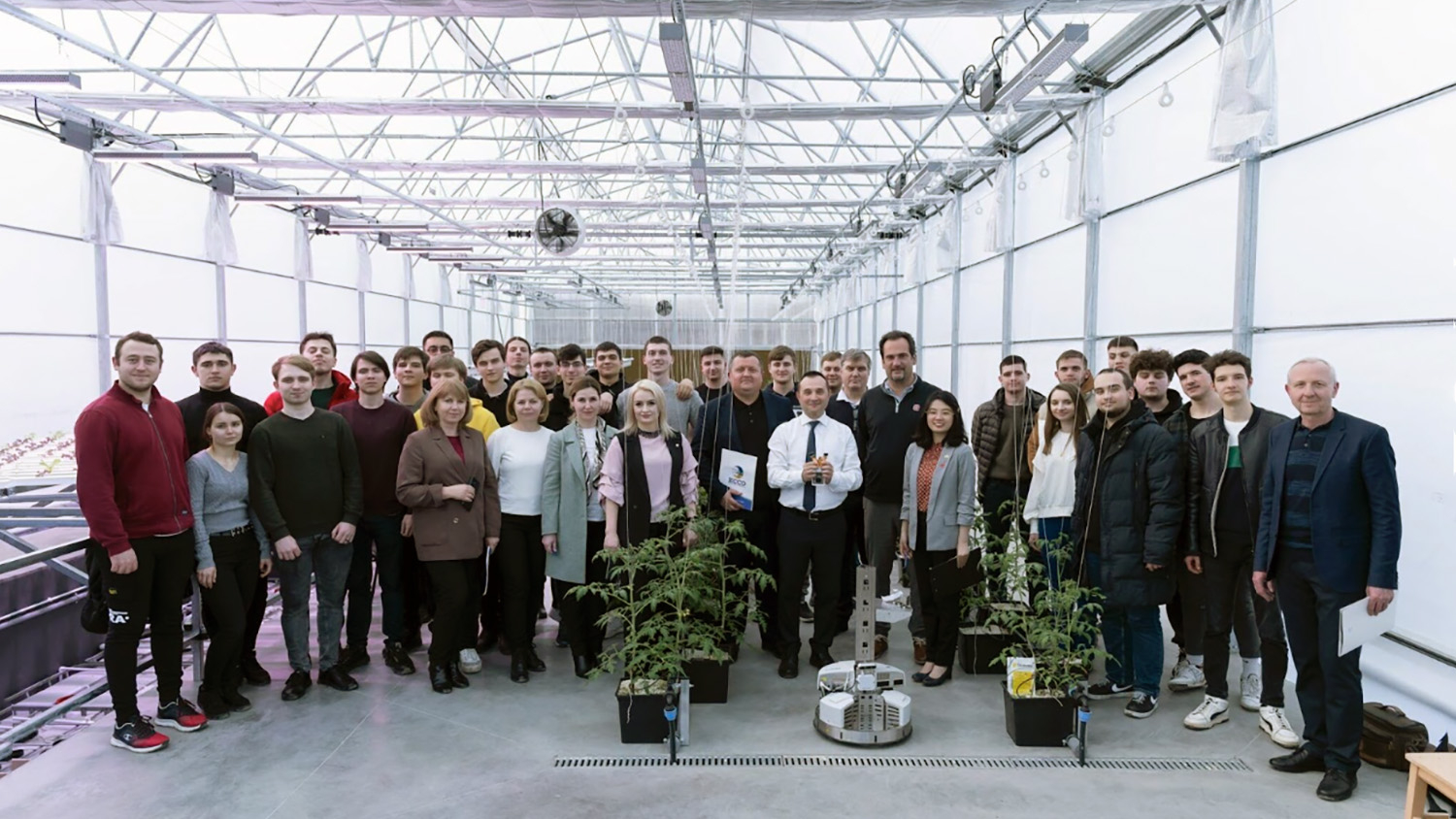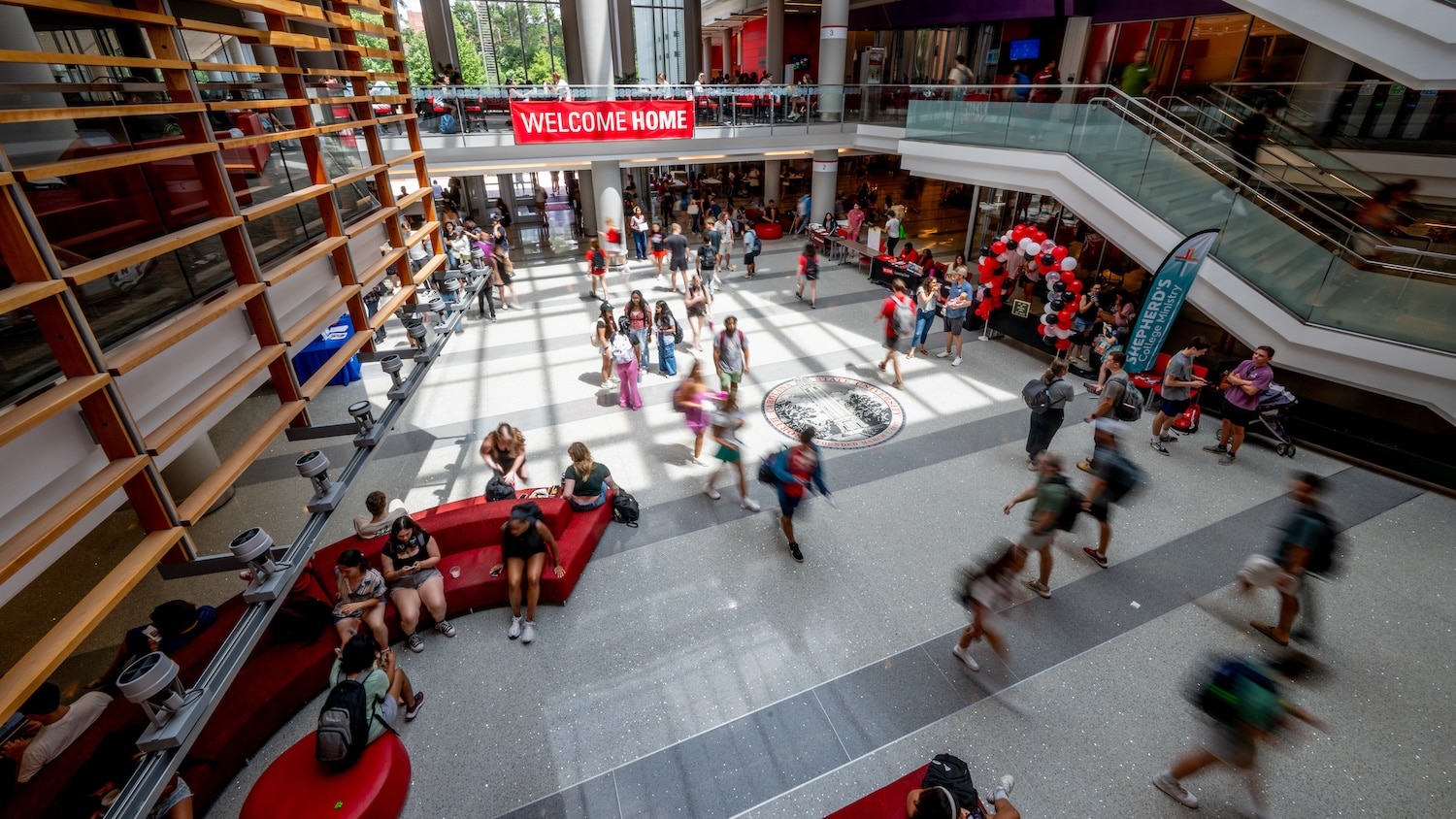By Olivia Rogers
A new partnership between NC State University and the Technical University of Moldova (TUM) continues to grow with support from faculty in the Department of Biological and Agricultural Engineering.
Lirong Xiang, assistant professor and principal investigator of BAE’s Automation and Robotics Lab, recently traveled to the Eastern European nation with the goal of exposing students at TUM to the applications of robotics in agriculture.
The initiative between NC State and TUM builds on an ongoing partnership between the state of North Carolina and the country of Moldova that dates back to 1999.
Chadi Sayde, assistant professor of biological and agricultural engineering, believes extending the partnership to include agriculture, and more specifically precision agriculture, will help North Carolina and Moldova address global challenges in the years to come.
“The future of agriculture is precision agriculture,” Sayde says.
That’s where Xiang comes in.
Her research focuses on agricultural robotics, 2D and 3D computer vision and machine learning. Sayde says it was obvious that he needed to recruit Xiang to this project because of her research focus.
In March, Xiang traveled to Moldova with Sayde and representatives from International Programs in the College of Agriculture and Life Sciences (CALS IP) where they met with students and faculty. Jose Cisneros, director of CALS IP, says this visit to TUM brought agricultural related components together.
“There is so much that they want to do, change and improve,” says Cisneros of TUM faculty. “That’s why they’re so enthusiastic about this partnership with NC State.”
On the trip, CALS IP helped make connections between researchers with similar disciplines. Representatives from Moldova also looked at models focused around irrigation, fruit production and food processing.

During her time in Moldova, Xiang provided expertise in AI and robotics, including participating as a judge in a hackathon competition, delivering a lecture to TUM students, and conducting two workshops for TUM faculty and local commodity groups.
The Robotized Systems Applied in Agriculture Hackathon gave TUM students an opportunity to explore ways in which agriculture and technology intersect.
“I was super impressed by the hackathon because the students, faculty members and team leaders were so passionate about AI and robotics in agriculture,” says Xiang.
During the competition, students examined scans of tomato plants which were taken by a robotic system. Each team was given a chance to inspect the scans and identify the health of the plants and any issues with them. Xiang leads many student-based events like this at NC State because she believes it is important to provide opportunities to “train the next generation of agricultural scientists.”

Xiang also discussed her research on robotics for tomato disease phenotyping with a delegation of faculty from TUM. She is currently working on a robot that can traverse between crop rows and scan plants for disease detection. The scans will produce images and GPS locations of the plants, and the data will provide farmers with information about what disease is present in the plants as well as the severity of the disease.
There was a lot of interest in her research because Moldova and North Carolina produce similar crops and Xiang believes it is a project with a lot of collaborative potential.
“We know we want to make this model as robust as we can,” she says. “We need as much training data and variations in the dataset as possible so we can collect the data, connect the images at different locations, share the data and train AI models.”
“Agricultural problems are complex,” adds Sayde, explaining that individual disciplines alone cannot solve these issues.
Combining disciplines, he says, will solve problems and allow the agriculture sector to grow. Sayde believes there is a need for more applied research to bridge the gap between research, education and extension. This project will help ensure that more research is done to address complex problems in agriculture.
Xiang adds that this partnership “offers the opportunity to exchange ideas, learn from different perspectives and work towards common goals that have the potential to make a positive impact on a global scale.”
This post was originally published in College of Agriculture and Life Sciences News.
- Categories:



